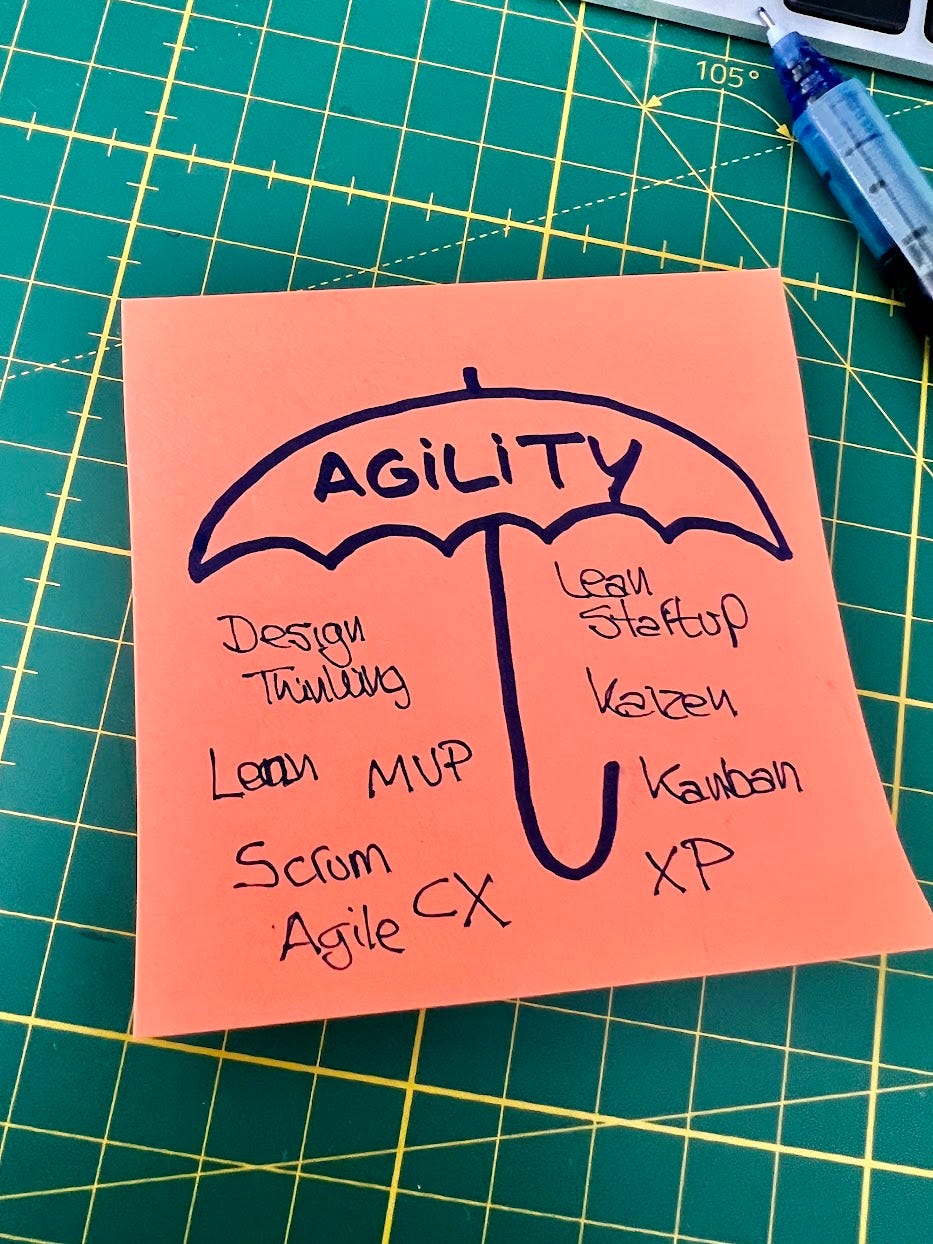
The agile mindset is a set of values, principles, and beliefs that guide individuals and teams in their approach to work, problem-solving, and collaboration. It emphasizes adaptability, flexibility, transparency, collaboration, and a focus on delivering value to customers. Key aspects of the agile mindset include…
Customer-centricity
Agile emphasizes the importance of understanding and prioritizing customer needs and delivering value to customers early and continuously. Teams focus on building products and solutions that address real customer problems and deliver tangible benefits.
Iterative and incremental approach
Agile encourages an iterative and incremental approach to work (MVP), where solutions are developed and delivered incrementally in small, manageable increments. This allows for faster feedback, reduces risk, and enables teams to adapt to changing requirements and circumstances more easily.
Continuous improvement
Agile promotes a culture of continuous learning and improvement, where teams regularly reflect on their processes, practices, and outcomes and look for opportunities to make iterative improvements. This includes practices like retrospectives, where teams reflect on their performance and identify areas for improvement.
Collaboration and teamwork
Agile emphasizes the importance of collaboration and teamwork, both within and across functional teams. Teams work closely together, share knowledge and expertise, and collaborate to solve problems and deliver value. This includes practices like daily stand-up meetings, where teams synchronize their work and identify any obstacles or dependencies.
Adaptability and flexibility
Agile values adaptability and flexibility in response to changing requirements, priorities, and circumstances. Teams embrace change as a natural part of the development process and are willing to adjust their plans, priorities, and approaches as needed to deliver value effectively.
Transparency and openness
Agile promotes transparency and openness in communication and decision-making, both within teams and with stakeholders. Teams openly share information about their progress, challenges, and decisions, enabling better collaboration, trust, and alignment.
The agile mindset is about embracing a set of values and principles that prioritize customer value, collaboration, flexibility, and continuous improvement.
It provides a foundation for agile methodologies like Scrum, Kanban, and Lean, enabling teams and organizations to deliver high-quality products and solutions more effectively and efficiently.


